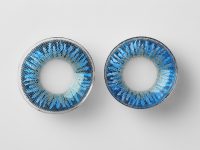It seems next to impossible, but it’s a fact: some people could be immune to HIV.
Scientists aren’t sure exactly why some of us are and most of us aren’t, but it’s believed to be in the genes. A genetic mutation inherited by people with ancestors who managed to survive the bubonic plague in Europe, might do the trick.
According to studies, a mutation called Delta32 keeps a protein dubbed CCR5 from rising to the surface of the immune system’s T cells, in people who have it.
This protects people with the mutation, because the HIV virus infects cells by grabbing onto CCR5 when it IS on the surface, and when it isn’t, the virus can’t do any harm.
CCR5 is, in a sense, like a doorknob that allows the cell to be opened to the evils of the HIV virus.
Why some people have this genetic mutation and most don’t, remains is a mystery. Only about 1% of Caucasian people are said to have it, and even fewer people of African, Native American and Asian decent.
And it’s not an absolute guarantee of never contracting the virus. In rare cases, it’s been reported that people with the mutation have died from being infected with HIV. But interestingly, more haven’t.
Reports indicate that scientists are currently investigating exactly how the CCR5 mutation can help more people overcome HIV and how safe or effective using its power can be.
Harnessing it could potentially save millions of lives and re-route the future of the AIDS.
Photo Credit: peterschreiber.media/Shutterstock











